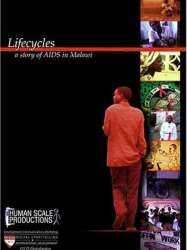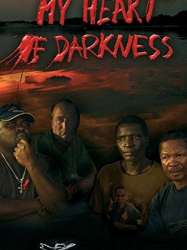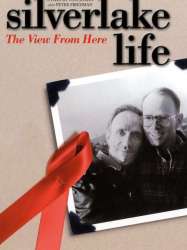State of Denial is a film of genre Documentary released in USA on 20 january 2003
State of Denial (2003)

If you like this film, let us know!
- Infos
- Casting
- Technical infos
- Photos
- Videos
- Film quotes
- Characters
- Music
- Awards
Released in USA 20 january 2003
Length 1h26
Genres Documentary
Themes Films set in Africa, Medical-themed films, Documentary films about health care, HIV/AIDS in film
Rating73%










State of Denial is a 2003 documentary film about AIDS in Africa, produced and directed by Elaine Epstein. The film highlights the errors of President Mbeki's government, which insists that there isn't enough evidence to show that HIV causes AIDS and refuses vital life-saving drugs to their people because of unknown long-term risks. The film follows the stories of HIV positive Africans and activists as well as their careers, interspersed with the harrowing statistics of the AIDS epidemic in Africa. It features various HIV positive patients coping with the disease in times when the use of ARV medicine was strongly discouraged by the South African government.
The movie captures the desperation and growing discontent of average South Africans infected and affected by the disease. Some of the subjects interviewed make heartbreaking but inspirational statements about AIDS and how living with it is like. After the death of his brother who also succumbed to the disease, a young man is filmed saying the following:
For me, it was the most traumatic time in my life because I could see myself in him. You know, he didn’t really have to die as helplessly as he did. And not only him, but thousands and thousands of people are dying unnecessarily. It makes me sick.
The movie also features Zackie Achmat, an HIV positive AIDS activist and co-founder of Treatment Action Campaign (TAC), who refused to take ARVs until they were made available to the general public.
State of Denial was first shown at the 2003 Sundance Film Festival It later aired on TV as part of the Acclaimed Point of View Documentary Film Series. Four of the subjects interviewed died before the movie was released.
Comments
Leave comment :
Suggestions of similar film to State of Denial
There are 8962 with the same cinematographic genres, 4793 films with the same themes (including 4 films with the same 4 themes than State of Denial), to have finally 70 suggestions of similar films.If you liked State of Denial, you will probably like those similar films :

Directed by Dorothy Fadiman
Origin USA
Genres Documentary
Themes Films set in Africa, Medical-themed films, Documentary films about health care, HIV/AIDS in film

O meu marido esta a negar (2007)
, 21minutesGenres Documentary
Themes Films set in Africa, Medical-themed films, Documentary films about health care, HIV/AIDS in film
Hermínia est une mère séropositive. Elle s’en est rendu compte lors de ses consultations à la maternité. Gabriel, son mari, est au courant de sa maladie et l’accepte. En revanche il refuse de faire les tests. Dans ce cas le traitement d’Hermínia ne lui servirait à rien. Elle est convaincue que si elle l’emmène voir une pièce de théâtre sur ce thème, il changera d’attitude. O meu marido está a negar décrit le spectacle interactif du Teatro do Oprimido et son rôle pour les malades du sida, en se proposant d'encourager les changements de comportement et la prise de conscience de leur public par rapport à cette maladie.

We Are Together (2006)
, 1h23Genres Documentary
Themes Films set in Africa, Films about children, Medical-themed films, Documentaire sur une personnalité, Documentary films about health care, HIV/AIDS in film
Actors Lorraine Bracco, Alicia Keys, Paul Simon, Kanye West
Rating76%






Origin Canada
Genres Documentary
Themes Films set in Africa, Medical-themed films, Documentary films about health care, HIV/AIDS in film
Lifecycles: a Story of AIDS in Malawi is an hour long documentary film shot over an eight-month period on location in Malawi, Africa. Malawi won't perish, but must grow with the virus as catalyst. Lifecycles provides a detailed glimpse into the lives of the Malawian people living with HIV and AIDS. Directors Doug Karr and Sierra Bellows travel across Malawi bringing us a glimpse of a complex situation that encompasses sadness and hope, defeat and renewal.

We Are Dad (2005)
Genres Documentary
Themes Films about adoption, Films about children, Films about families, Medical-themed films, Films about sexuality, LGBT-related films, Documentaire sur l'homosexualité, Documentaire sur une personnalité, Documentary films about health care, LGBT-related films, HIV/AIDS in film, LGBT-related film
Rating79%





 , 1h24
, 1h24Origin Israel
Genres War, Documentary
Themes Films set in Africa, Medical-themed films, Films about drugs, Documentary films about law, Documentary films about war, Documentary films about historical events, Documentaire sur une personnalité, Documentary films about health care, Films about psychiatry, Films about disabilities, Political films
Rating73%





 , 45minutes
, 45minutesOrigin Canada
Genres Documentary
Themes Medical-themed films, Documentaire sur une personnalité, Documentary films about health care, HIV/AIDS in film
Rating69%






My Heart of Darkness (2010)
, 1h33Genres War, Documentary
Themes Films set in Africa, Medical-themed films, Documentary films about war, Documentary films about historical events, Documentaire sur une personnalité, Documentary films about health care, Films about psychiatry, Films about disabilities, Political films
Rating63%






The Self-Destruction of Gia (2003)
, 1h20Origin USA
Genres Documentary
Themes Medical-themed films, Films about drugs, Documentary films about law, Documentaire sur une personnalité, Documentary films about health care, Films about psychiatry, Films about disabilities, HIV/AIDS in film
Actors Zoë Lund
Rating81%





 , 1h39
, 1h39Directed by Peter Friedman
Origin USA
Genres Documentary
Themes Medical-themed films, Films about sexuality, Bisexuality-related films, LGBT-related films, Documentaire sur l'homosexualité, Documentary films about health care, Documentary films about cities, LGBT-related films, HIV/AIDS in film, LGBT-related film
Rating80%





 Connection
Connection